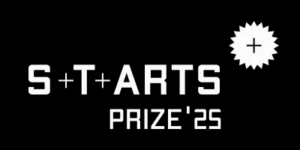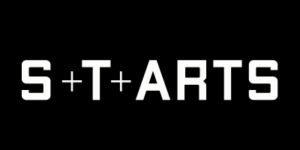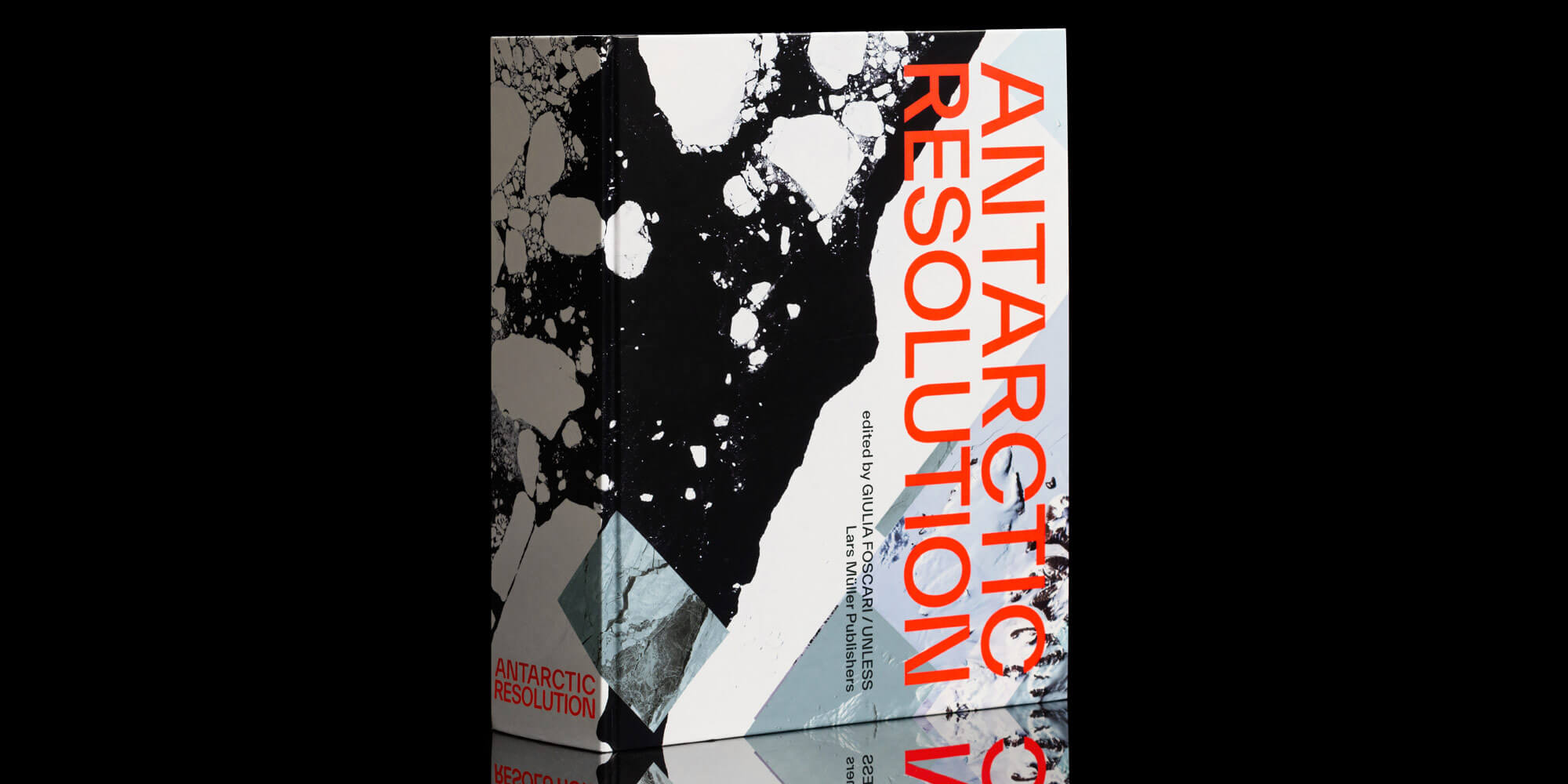Grand Prize – Innovative Collaboration: Awarded for innovative collaboration between industry or technology and the arts that opens new pathways for innovation.
Auf die Antarktis entfallen 10 Prozent der Landmasse, 70 Prozent des Süßwassers und 90 Prozent des Eises des Planeten Erde. Sie bildet die größte Fundgrube für wissenschaftliche Daten über unsere Klimageschichte und damit eine unersetzbare Grundlage für wichtige umweltpolitische Maßnahmen. Gleichzeitig birgt sie die größte Bedrohung für Küstensiedlungen in aller Welt: Schmelzen ihre riesigen Eismassen ab, steigt der Meeresspiegel in bedrohliche Höhen.
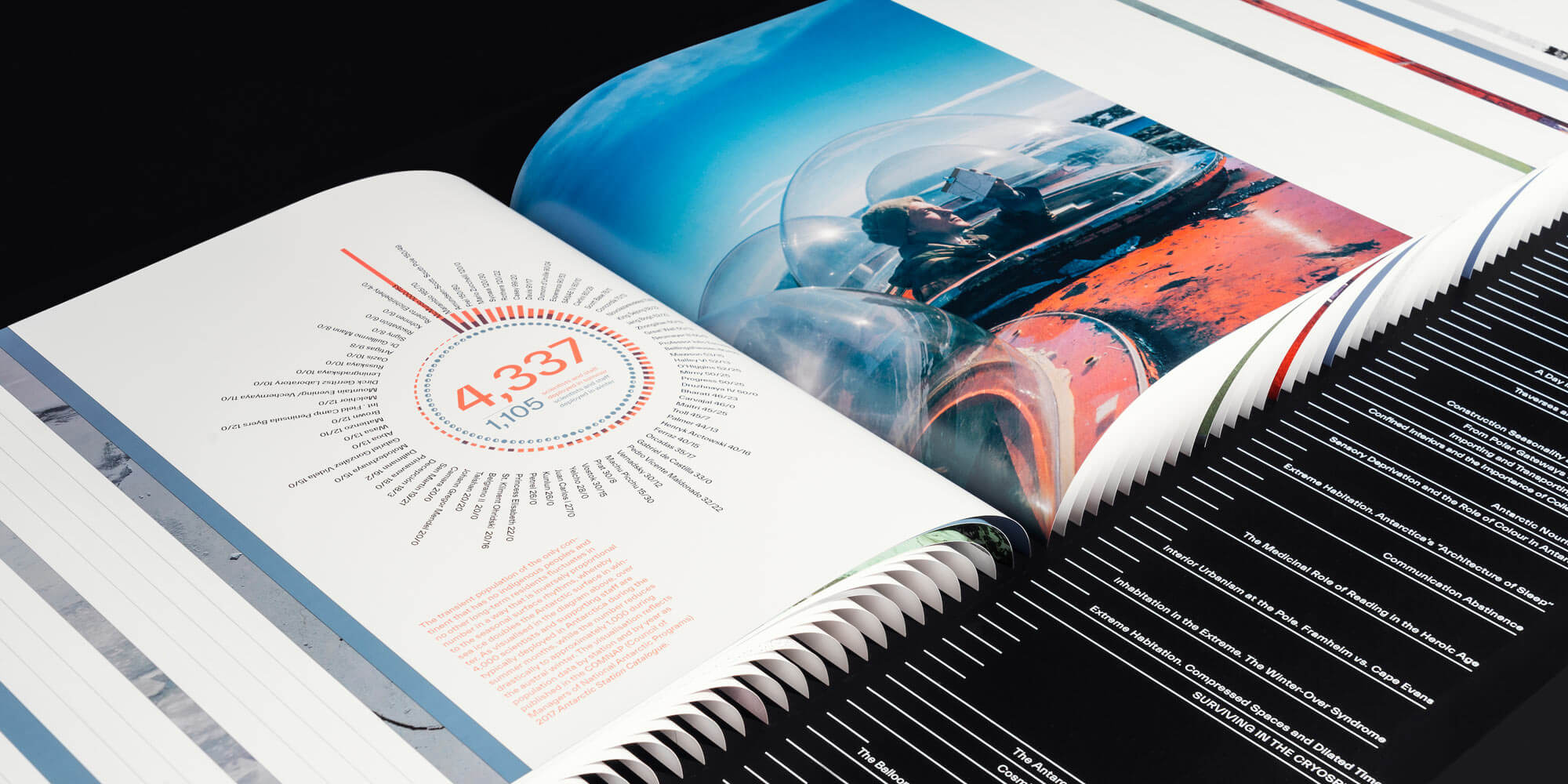
Zurzeit schmilzt der kilometerdicke Eisschild mit alarmierender Geschwindigkeit: pro Minute ergießen sich 200 olympische Schwimmbecken ins Meer. Ein vollständiges Abschmelzen des antarktischen Eises würde den Meeresspiegel weltweit um 60 Meter ansteigen lassen und die größte Migrationsbewegung auslösen, die die Menschheit je erlebt hat.
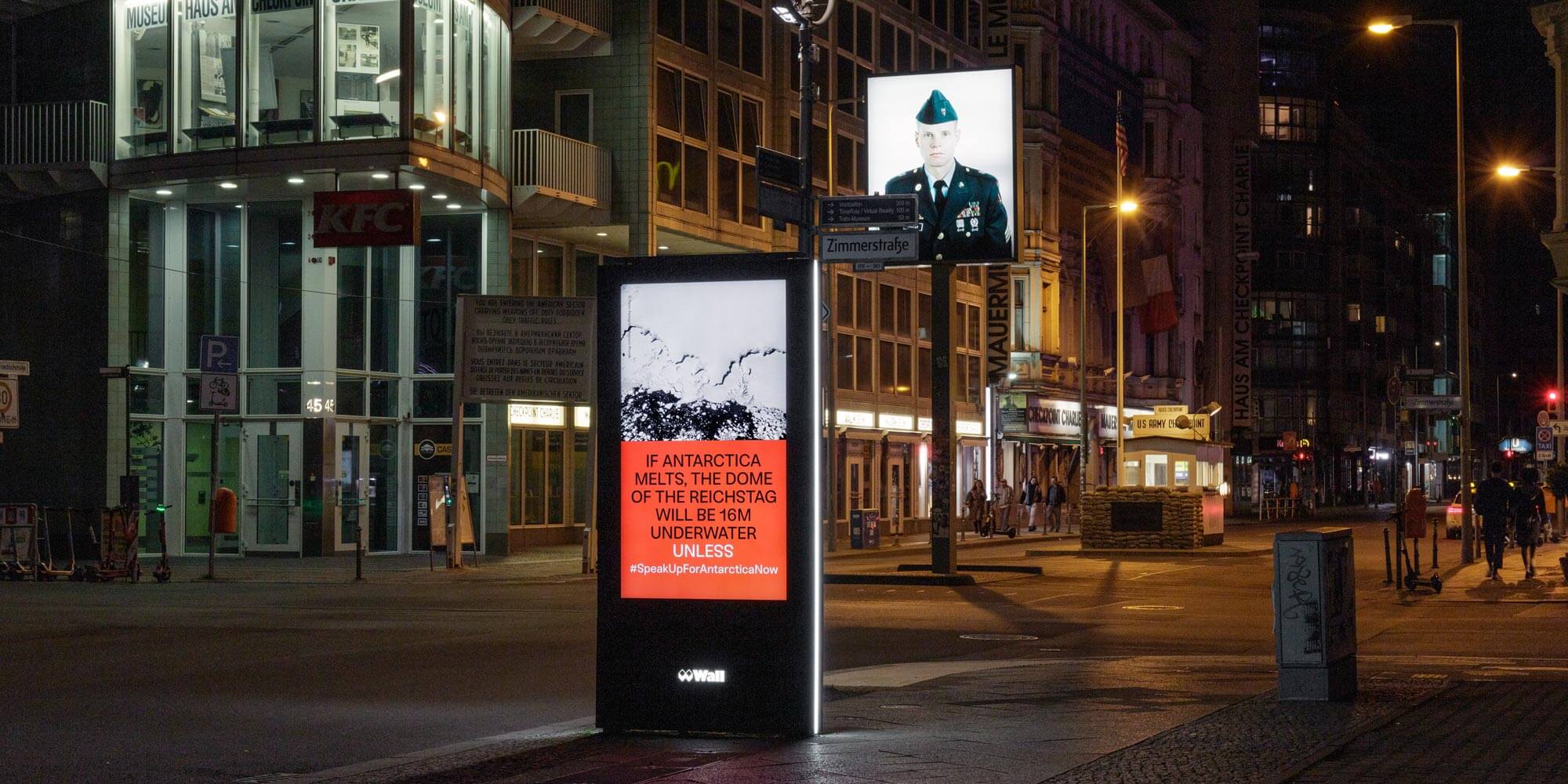
Trotz des Umstands, dass unsere Zukunft also ganz wesentlich vom Schicksal der Antarktis abhängt, wird unser siebter Kontinent sträflich vernachlässigt. Zudem ist die Antarktis umkämpftes Territorium; ihr Reichtum an Ressourcen weckt Begehrlichkeiten.
Giulia Foscari / UNLESS rief „Antarctic Resolution“ ins Leben, um mehr Aufmerksamkeit auf die Antarktis als eines unserer wenigen globalen Gemeingüter zu lenken und um eine Interessenvertretung für den einzigen Kontinent ohne einheimische Bevölkerung zu begründen. Ihre Botschaft: Der Schutz der Antarktis, ist der Schutz unserer eigenen Spezies.
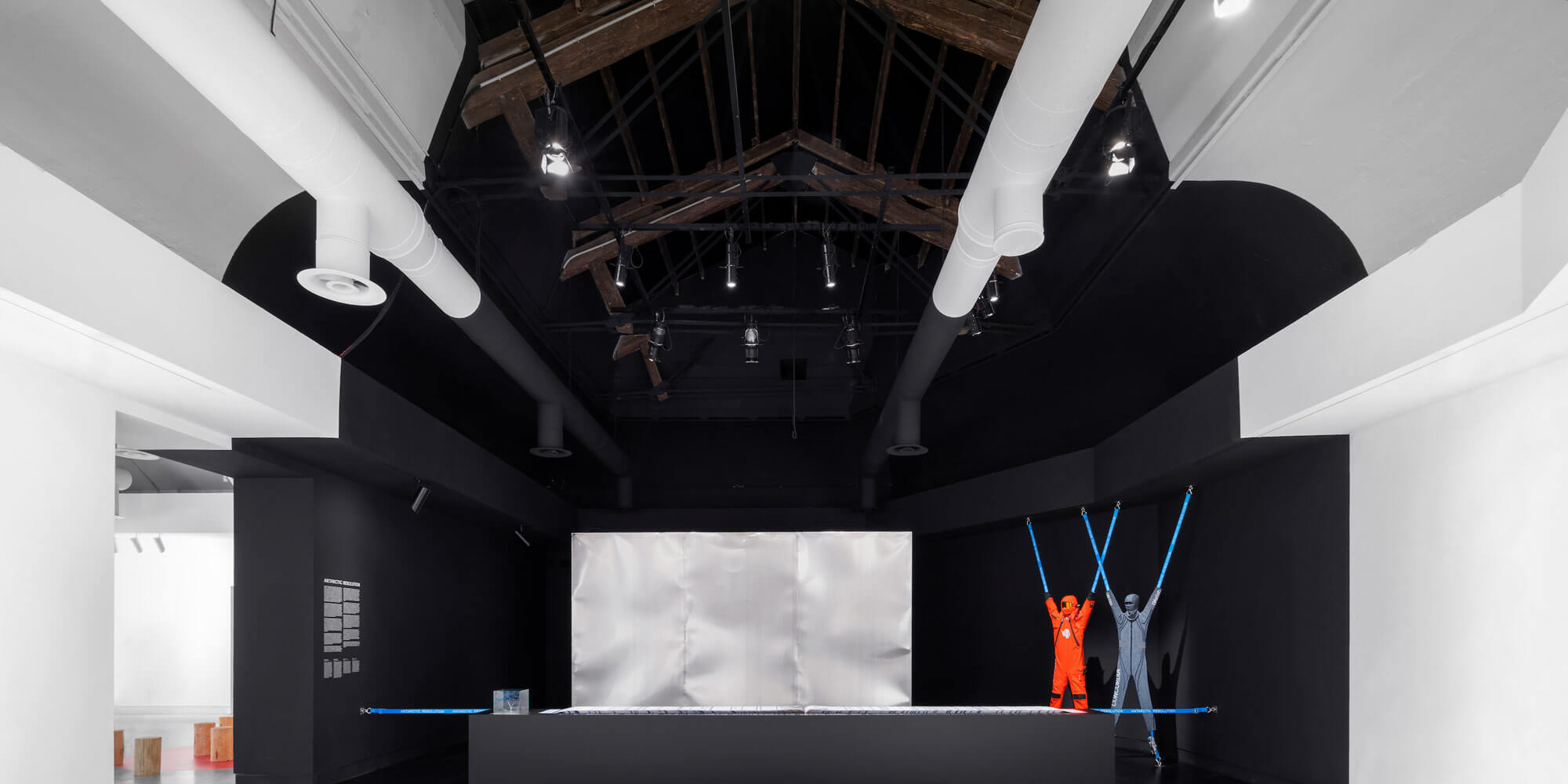
Giulia Foscaris „Antarctic Resolution“ ist ein transnationales und multidisziplinäres Gemeinschaftsprojekt und wurde anlässlich des zweihundertsten Jahrestages der ersten aufgezeichneten Landung von Menschen auf dem Kontinent als 1000-seitiges Buch veröffentlicht. Verfasst wurde die Erklärung von 150 führenden Antarktis-Expert*innen, herausgegeben wurde sie vom Lars Müller Verlag. Die enzyklopädische Publikation fokussiert auf das wissenschaftliche Potenzial des Kontinents, seine aktuelle geopolitische Bedeutung und sein außergewöhnliches Besiedlungsmodell. Der Band beinhaltet zahlreiche wissenschaftliche Studien, fotografische Essays, datengestützte Infografiken, Kartografien und Architekturzeichnungen.

Anlässlich des 30-jährigen Bestehens des Umweltschutzprotokolls zum Antarktisvertrag (Madrid, Spanien) wurde das Projekt im Zentralpavillon der 17. Internationalen Architekturbiennale in Venedig sowie im Madrider Museo Nacional Thyssen-Bornemisza groß präsentiert.
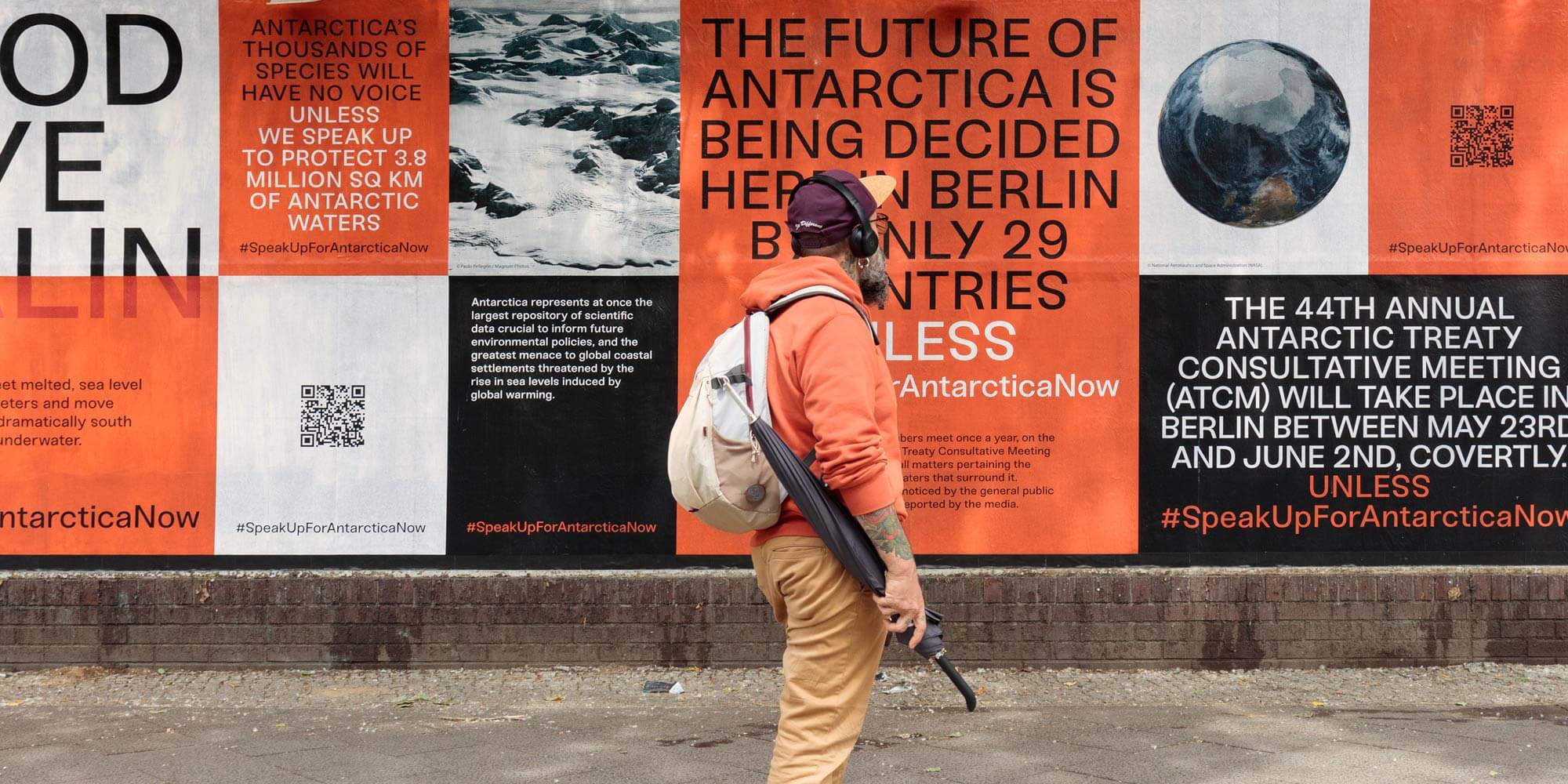
Im Rahmen des 44. Antarctic Treaty Consultative Meeting (ATCM) in Berlin, ließ das Projekt die Welt von Kunst und Kultur hinter sich und eroberte die deutsche Hauptstadt mit der Kampagne „Speak Up for Antarctica Now“. Berlinerinnen und Passantinnen wurden dazu aufgerufen, von den ATCM-Delegierten aller 29 entscheidungsbefugten Nationen, Rechenschaft über die Zukunft eines Kontinents zu verlangen, der 1,4-mal so groß ist wie Europa. Die Delegierten wurden aufgefordert, ihre Verantwortung als Bürger*innen der Antarktis wahrzunehmen und für Generationengerechtigkeit einzutreten.
Credits
Giulia Foscari & UNLESS
https://una-unless.org/
Antarctic Resolution. Publication
Editor: Giulia Foscari / UNLESS
Authors: 150 interdisciplinary specialists (full list in project URL)
Data/Images: 82 organizations & archives, 27 artists (full list in project URL)
Cartography/Infographics: UNLESS, The Polar Lab, Pomo
Architectural Drawings: UNLESS, The Polar Lab
Publisher: Lars Müller Publishers
Antarctic Resolution. Exhibition in Venice, Italy
Exhibitor: Giulia Foscari / UNLESS
Featured: Arcangelo Sassolino; David Vaughan; D-Air Lab
Collaborators: Lars Müller Publishers, Scott Polar Research Institute
#SpeakUpForAntarcticaNow. Campaign in Berlin, Germany
Concept: UNLESS with Carlo Barbante, Alan D. Hemmings, James N. Barnes
Graphic design: Studio Vedet and HaugHaug.
Photographers: Shaun O’Boyle, Sebastian Copeland, Andrea Izzotti, Spencer Lowell, James Morris, Paolo Pellegrin, Emil Shulthess, John Weller, Norbert Wu
With support from: D-Air Lab; Fondazione Giuseppe e Pericle Lavazza; Furthermore: a program of the J. M. Kaplan Fund; Graham Foundation for Advanced Studies in the Fine Arts; Thyssen Bornemisza Art Contemporary TBA21; Ursula Stein.
Biography
Giulia Foscari W. R. (IT) is an architect, researcher, and activist who has been practicing in Europe, Asia, and the Americas. She is the founder UNLESS, a non-profit agency for change, and of its alter ego UNA, an architecture studio focused on cultural projects. Giulia taught at Hong Kong University and at the Architectural Association. The work of UNA and UNLESS was exhibited extensively internationally. Giulia authored Elements of Venice and edited Antarctic Resolution (Lars Müller Publishers). She is a member of the International Council of the MoMA, a Board Member of the Fondazione Musei Civici di Venezia and of the Antarctic Southern Ocean Coalition.
UNLESS is an agency for change. It is a non-profit organization devoted to transnational research on extreme environments threatened by the planetary crisis. Founded by architect Giulia Foscari in 2019, the agency collaborates closely with a vast network of multidisciplinary specialists based on all seven continents. UNLESS operates alongside its alter ego, the architecture studio UNA.
Jury Statement
Although the images from Antarctica have become somehow iconic for the looming planetary change, besides a few experts, most of us don‘t have any understanding of the very fragile ecosystem of Antarctica and its importance to the whole planet. How can we not just see the symptoms but understand the causations and consequences? This is the major challenge that the fascinating project Antarctic Resolution, initiated, curated and enabled by Giulia Foscari / UNLESS, is set to take on, and with this in mind it is no longer surprising that it is probably the largest and most diverse collaboration ever to win this award for innovative collaborations. Giulia Foscari herself is an excellent example for multi- and cross-disciplinary expertise: architect researcher, activist, founder, educator, working in and at the hotspots of globalization and collaborating with local communities as well as with many big shots in architecture and urban planning, she built not only a comprehensive knowledge and overview of the ongoing climate change but also wove an immense network of experts and gained broad reputation with her presentations in many high profile art exhibitions and events. One of the many characteristics and features often attributed to art is its ability to make the obvious also seeable, the understandable also comprehensible and this is one of the high qualities of Antarctic Resolution. It opens up new perspectives and insights by leveraging the means and powers of art as a research practice as well as a way to enable awareness and concern, participation and involvement. It is not only a remarkable evidence of the growing number of art projects that go beyond addressing the topic of climate change but engage in the activism that is necessary to tackle it. Antarctic Resolution is also an amazing collaborative achievement with over 150 experts collaboration and contributing. And last but not least it is an exciting, almost breathtaking art installation.
